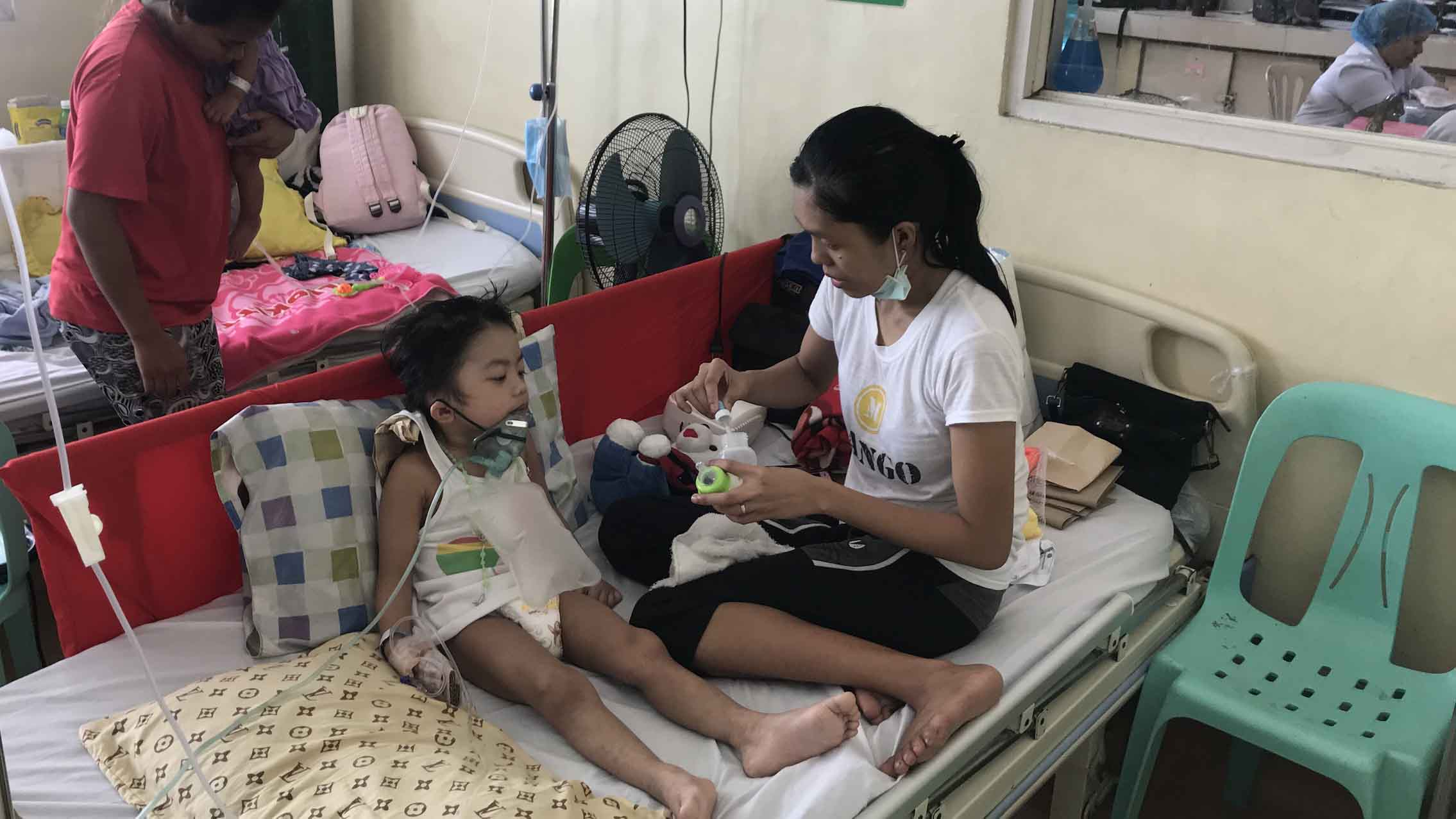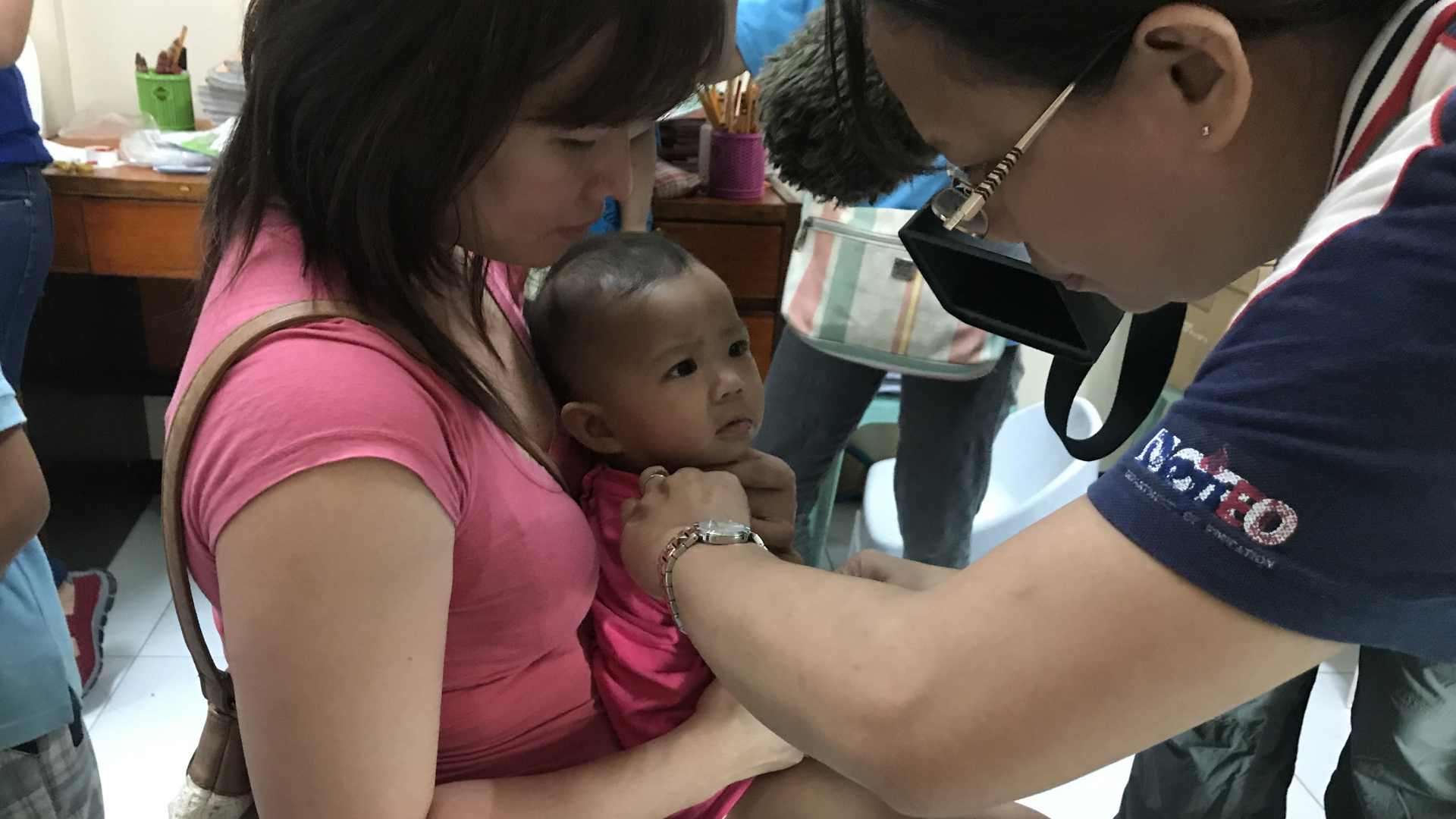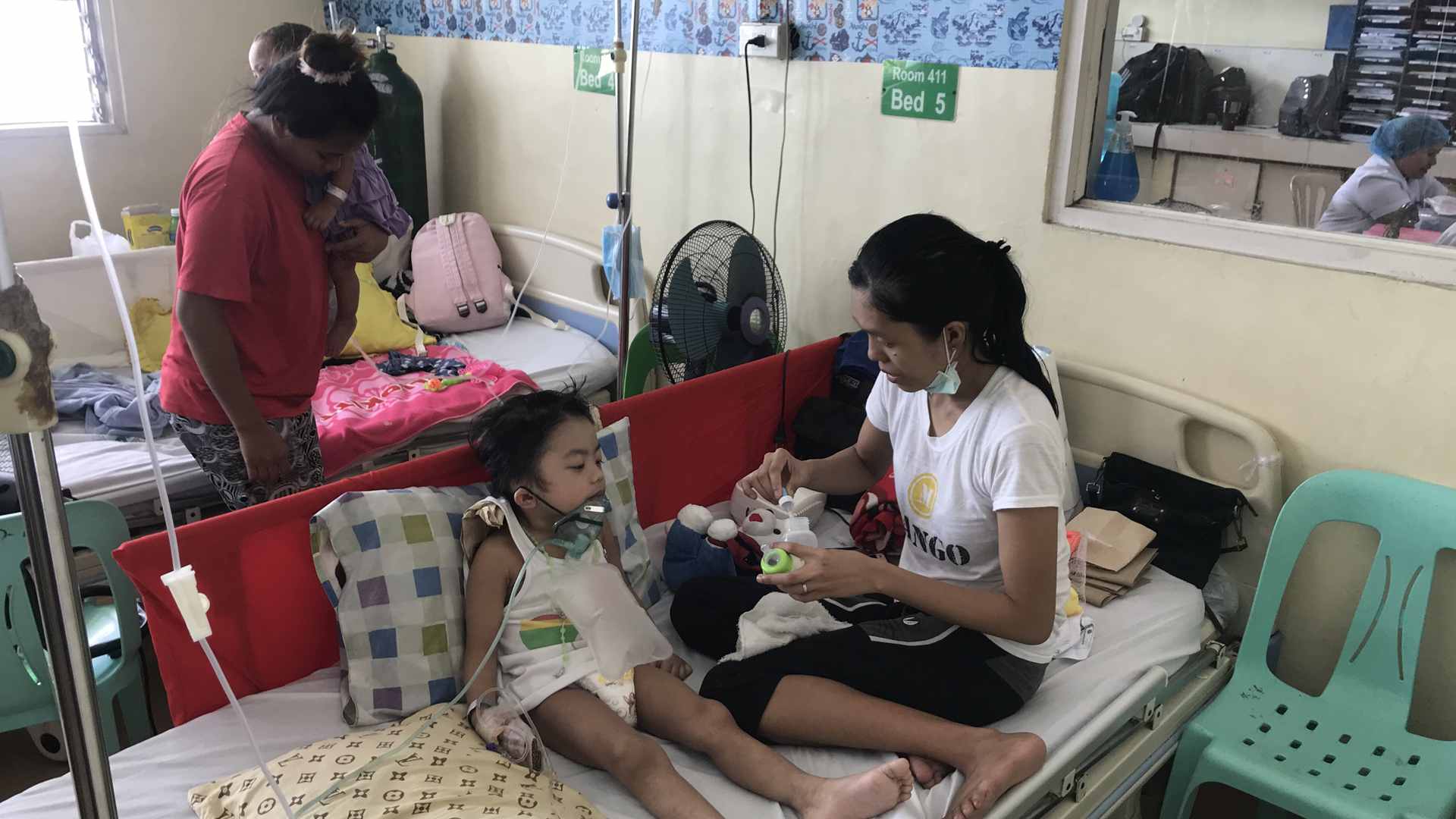
Health
14:50, 10-Mar-2019
Measles Outbreak: Over 16,000 cases reported in the Philippines
By Barnaby Lo
02:11

If you're driving into San Lazaro Hospital in the Philippine capital Manila for the first time, you can be forgiven for thinking it's a disaster zone. You can't miss it – a big white tent sits across the hospital's entrance. Inside the makeshift medical facility, there are beds that can accommodate up to 50 patients.
With a 500-bed capacity, San Lazaro Hospital is considered one of the biggest government-run hospitals in the country. But a measles outbreak has stretched its resources thin. Help from organizations like the Red Cross, which set up the tent, has become necessary.
Since declaring an outbreak in early February, the Health Department has recorded more than 16,000 cases. In San Lazaro Hospital alone, as of March 6, 2019, 95 have died from the disease; nationwide, the death toll has reached 250. Many of the victims are children.
Cindy Mustrado nearly lost her three-year-old son, Cedric, three weeks ago.

Cindy Mustrado with her three-year old son Cedric, who suffers from measles. /CGTN Photo
Cindy Mustrado with her three-year old son Cedric, who suffers from measles. /CGTN Photo
"When we saw rashes on his skin, we took him to the doctor immediately. He was diagnosed with measles. A few days later, his toenails turned black. When we took him to the hospital, he was already fighting to stay alive," Mustrado said.
Cedric survived, but he is not out of the woods yet. His mother says doctors are now treating him for pneumonia, and they suspect he may also be suffering from tuberculosis.
Measles is a preventable disease but the United Nations Children's Fund (UNICEF) says the immunization level in the Philippines, as well as in several other countries, has been declining over the last few years.
"We see in the Philippines hesitancy to have children immunized, but there are other factors, such as the lack of supplies, stocked out vaccines, and insufficient numbers of trained health workers. The inaccessibility of some areas is also a factor," Julia Rees, deputy country representative of UNICEF, told CGTN.
Health officials have also attributed the outbreak to the fear of vaccines caused by a controversy over the dengue vaccine Dengvaxia.
In 2016, the government embarked on a mass immunization program that was supposed to protect schoolchildren from dengue fever, but a year later, Dengvaxia's manufacturer, French pharmaceutical company Sanofi Pasteur, warned that the vaccine can't guarantee protection for those who've never had dengue fever and may even be at risk of hospitalization.
The advisory caused widespread panic; lawsuits and congressional inquiries followed. And although medical experts say there is no proof yet to link Dengvaxia to any death, health workers say they've had difficulty convincing some parents to get their children vaccinated against any disease.

Plummeting immunization levels have resulted in a measles outbreak in the Philippines and in other countries. Vaccination is the only way to end the health problem. /CGTN Photo
Plummeting immunization levels have resulted in a measles outbreak in the Philippines and in other countries. Vaccination is the only way to end the health problem. /CGTN Photo
The tide, however, appears to be turning.
Earlier this week, CGTN's news crew followed a team of health workers who had planned to get children vaccinated, one house at a time. But as soon as they set up a station at a daycare center, mothers, with their children in tow, started streaming in.
Indeed, more than a million Filipino children have now been vaccinated, according to the Health Department. The aim, however, is to immunize close to 4 million children. Both the government and UNICEF say the only way to end the outbreak is to reach that goal.
"Many of the healthcare gains are directly as a result of the fact that we invested in immunization for many years, and we continue to do some, and we can't drop the ball and assume that kind of these diseases will go away," said UNICEF's Rees.
For Cindy Mustrado, the lesson is to never be complacent. She says she never lost trust in vaccines, but because her children seemed healthy, she did not feel any urgency to get them vaccinated.

SITEMAP
Copyright © 2018 CGTN. Beijing ICP prepared NO.16065310-3
Copyright © 2018 CGTN. Beijing ICP prepared NO.16065310-3